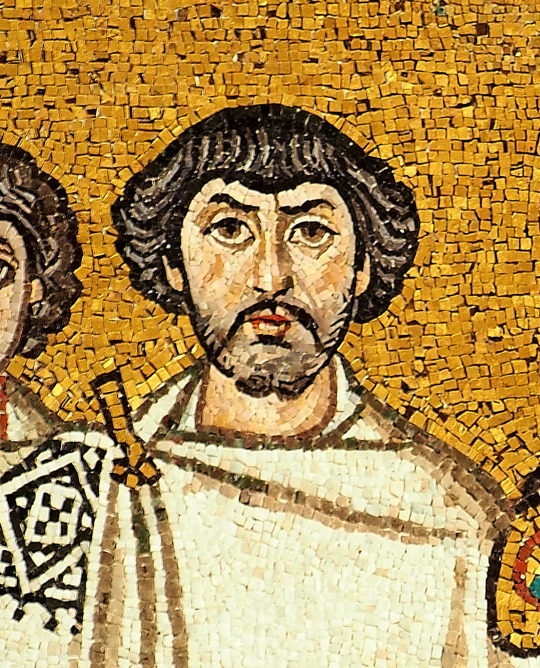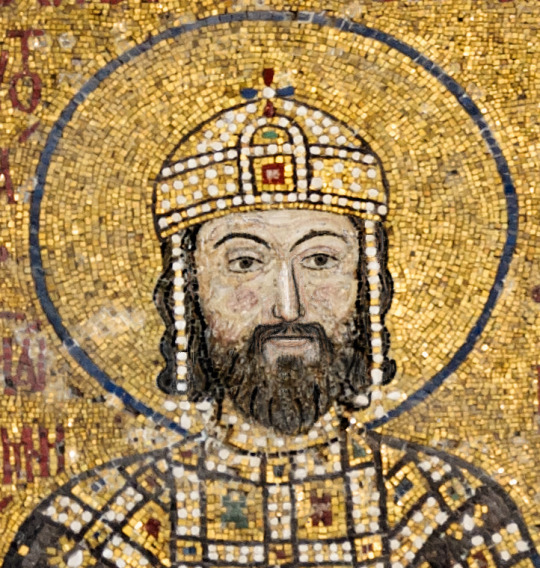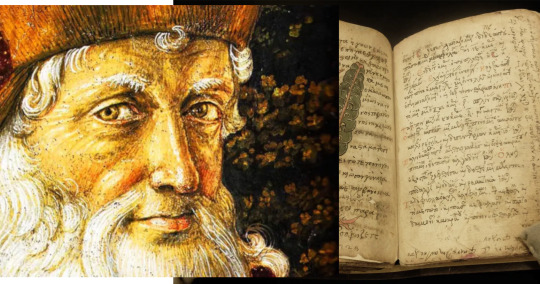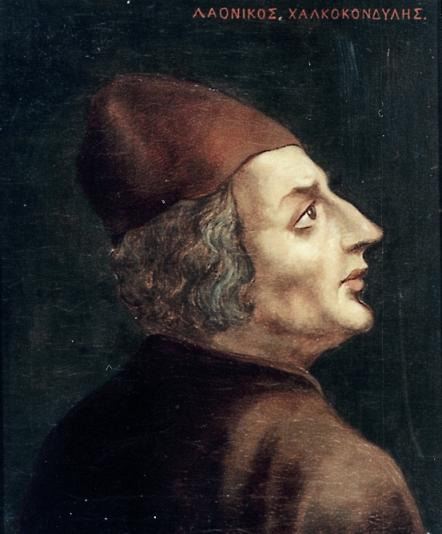#komneni dynasty
Explore tagged Tumblr posts
Text
Wrapped up the last book on Roman history:
From the history of Rome I now move to the history of France, for a time, and wrap things up with Ira Lapidus's history of the Muslim world. This book, all 857 pages of it, covers the full sequence of the history of the Eastern Romans from the reign of Diocletian to that of Constantine XI. In the course of that 1153 years the Byzantine state first adopted Christianity, replaced the habit of civil wars with palace putsches, and underwent a history that like that of Kanem-Bornu defies the usual conventional wisdom of the histories of states and empires neatly fitting into a rise-maturity-fall triad. The Empire underwent several major catastrophes, but only 1204 and 1453 finally proved fatal, by which point it made it all the way to the age of the gunpowder empires introduced by the Ottoman Sultans and but four decades from the cataclysmic arrival of European colonialism in the Americas.
Virtually all of the cliches that define the various narratives of the downfall of the West do not apply to the Byzantine state. Christianity was the ideological framework of a powerful state that lasted over a millennium. Overmighty generals did orchestrate palace coups and from time to time civil wars and found new dynasties, but these same men were able to restore the Empire twice in crises even when their actions worsened them. Climate change, if it supposedly toppled the West had a vacuum-sealed bubble around the East that miraculously exempted the founding Emperors and generals of the Byzantine state from the decay that took the West, so presumably Eastern Orthodoxy allows for a nullification of climate via icons. /snerk
Ultimately it is one of the deeper ironies that in a very real sense the Roman Empire not only did not entirely fall, under Justinian I it underwent a resurgence that briefly re-established Roman rule on both ends of the Mediterranean, before the civil war of Phocas and Heraclius brought the empire to near-ruin first at the hands of the Sassanian Emperor Khosroes II and then the rise of the Rashidun and Ummayyad Caliphates. Even then it underwent a second resurgence from the reign of Irene to that of Basil II Bulgaroktonos (Bulgar-Slayer, most famous for the Battle of Kleidon where in the aftermath he blinded 99 out of 100 and left the other 10 with sight in one eye to lead them back to the Tsar, who died of shock at the sight).
The successes and the wealth from these conquests produced a drifting state that in turn disintegrated into the 1204 catastrophe of civil war mixed with the opportunistic forces of the Fourth Crusade....only to regenerate again when the Despotate of Nicaea overcame its first rival in Epirus, regained the capital, and tried to restore the realm with more success than might be expected until the heirs of Ghazi Osman began to build an empire that would ultimately revive, however briefly, the borders of the Diocletian-era empire.
These are truths that worked together with all the more familiar narratives of different facets of medieval times, the Byzantines outlasted the Arab states' periods of self-rule before the Seljuk and then Ottoman Sultans replaced Arab elites with Turkic, they outlasted the glory days of the Bulgarian Khanates and then Tsardom, of Stepan Dushan's Serbia, of Kyivan Rus and the Khazar Khaganate that preceded it, of the Carolingian Empire's own bid to rebuild a Western European super-state and the glory days of medieval German culture in the pan-European power games of the Ottonians and the Staufens.
And they even managed to match the Hundred Years' War, for that matter, as their empire expired about when the conventional ending of that war's held to be. To remember that, and to look at the history of what could be either medieval Rome or medieval Greek history with equal truth to those labels, is to reappraise the past in a way that matters not least for smacking around multiple narratives with a sledgehammer wielded by someone out of a drunken Jackass tryout.
9/10.
#lightdancer comments on history#book reviews#byzantine history#constantinian dynasty#theodosian dynasty#macedonian dynasty#komneni dynasty#angeloi dynasty#paleologoi dynasty
1 note
·
View note
Note
Which Byzantine figures do you consider underrated? As someone who has slowly started to learn more about Byzantium, names like Constantine the Great, Justinian the Great, Theodora, Irene of Athens, Anne Komnene, Nikephoros Phokas, Constantine Palaiologos, Tsimiski, Basil, Zoe and Theodora Porprhyrogennita and Theophano are familiar, but do you have any other recommendations (sorry if I misspelled some)?
Below are a few Byzantine historical figures I find very interesting currently:

Flavius Belisarius (c.500 - 565)
While Justinian the Great is one of the most significant emperors in history, his accomplishments would simply not be the same, if he did not have Belisarius as his military commander. He was of uncertain descent (possibly Thracian, Illyrian or less so Greek) but his mother tongue was certainly Latin. Belisarius reconquered Rome and Italy while severely outnumbered during the Gothic War, defeated the Sassanids in the Iberian War, conquered the Vandal Kingdom in North Africa, successfully repulsed the Huns and defended the empire from the Persians and the Arabs. The Byzantine Empire reached its largest surface mostly thanks to Belisarius. A more controversial point in his life was when he was commanded to suppress the notorious Nika riots against Justinian, which ended in a massacre of dozens of thousands civillians. Belisarius was above all a strategist; he didn't mind fleeing the battle or using trickery in order to win a war. Despite his analytical mind in battle, he resolutely wasn't one in the affairs of the palace. Belisarius was married and quite smitten with Antonina, who had the favour of Empress Theodora, and thus felt safe to be totally unhinged. Schemes happening in the palace would sometimes find a scapegoat in Belisarius, who was likely the most genuinely devoted person to the emperor. As a result, Belisarius was often not treated well by the emperor and the secretaries and he was cheated on by his wife. He was even led to trial for betrayal, although Justinian eventually pardoned him. According to legend, Justinian first blinded him and then pardoned him, although lately the historicity of this is questioned. What's certain is that Belisarius didn't receive the respect he deserved in his personal life but he earned the respect of the historians, who consider him one of the best military leaders in history.

Ioannis II Komnenos (1087 - 1143)
Known as Kaloioannis (John the Good / Beautiful), Ioannis is considered the best emperor from the Greek dynasty of the Komneni. Ioannis was not beautiful, he must have been rather unattractive actually, but he earned the title because of his noble character. He was the brother of Anna Komnene, he was the one she tried to poison so that she would ascend to the throne instead. Ioannis forgave her. Ioannis was very just, modest and pious and would only use his imperial luxuries during diplomat visits. He was married to Irene of Hungary. Whether it was because of his piety, his natural predesposition or a different orientation, Ioannis was not very interested in the joys of marriage. However, he remained devoted and faithful to her. It is notable that during his long reign, not a single person was sentenced to death or mutilation, at a time that this would have been the norm for criminals and traitors. Despite all that, Ioannis was actually a great military leader once need arose. His biggest goal as an emperor was to undo the damage from the Battle of Manzikert 50 years prior. Indeed he forced Seljuk Turks to assume a defensive stance and did expand the empire's power to the east again. The Byzantine population increased during his reign. It is certain that Ioannis left the empire significantly better than how he received it. Some sources suggest that Ioannis' noble character was an inspiration to the people of his empire.

Michael Psellos (1017 - 1078)
Psellos was a Greek man of great knowledge and intellect and a questionable character. He did it all; he was a monk, a writer, a philosopher, a judge, a music theorist, an imperial advisor and courtier and a historian. His skill in literally everything led him quickly to the position of the leading professor in the University of Constantinople and that of secretary in the imperial court. His political influence was immense and he saw many emperors succeed each other while he maintained his position as political advisor. Because a big part of his work is autobiographical, it is unclear whether some of his claims are entirely reliable; Psellos was prone to vanity and sarcasm against those who did not favour him. Psellos studied Plato thoroughly, so much so that at times his faith in Christian Orthodoxy was questioned. *Fun fact: Psellos was apparently good at everything except Latin. His Latin was so rusty he confused Cicero with Caesar!
He looks like a Greek Rasputin in his painting above lol Anyway, he was manipulative but he wasn't nowhere near as controversial as Rasputin, let me be clear.

Georgios Gemistos Plethon (c. 1355 - 1452/1454)
Gemistos Plethon was a scholar and philosopher of the late Byzantine era. He was the pioneer of the revival of Greek scholarship in Western Europe. He was secretly not Christian, he believed in the Ancient Greek gods. Plethon admired Platon too. (It's Platon in Greek.) So much so that he added "Plethon" next to his surname Gemistos, which means pretty much the same thing (full) except more archaic and more similar to Plato(n)'s name! He was imperial advisor to the Palaeologi dynasty who at the time were reigning from Mystras, as the empire was dissolving. Everyone suspected his pagan beliefs but he was so influential and important that nobody dared confront him about it. He taught philosophy, astronomy, history, geography and classical literature. He was invited to Florence, Italy to teach Plato and Aristotle and help Florentines understand the differences between the two philosophies. Plethon died in Mystras shortly before or after the Fall of Constantinople. We don't know if he lived enough to see the empire fall. Around 10 years later, some of his Italian followers stole his remains from Mystras and interred him in Rimini, Northern Italy, so that he could "rest amongst free men". Plethon's vision was the revival of the Byzantine Empire, founded on a utopian Hellenic (and not universal) system of government. In one of his speeches, he said "We are Hellenes by race and culture". He is at the forefront of historical studies exploring the connections between Byzantine and Modern Greek identity.

Laonikos Chalkokondyles (c. 1430 - 1470)
Chalkokondyles was an Athenian native, from a prominent old family of the city. He was a historian who witnessed the last years of the Byzantine and the early years of the Ottoman Empire. He was sometimes employed by the Byzantine emperors as a messenger to the Sultan Mehmed II, not without drama. Chalkokondyles wrote in detail about 150 years prior to his lifetime. He described the fall of the Byzantine Empire, he offered a profile of the Ottoman Turks, and he wrote about their conquest of the Venetians and Matthias the King of Hungary. He also explored the civilisations of England, France and Germany. I didn't know about him until I read a great Romanian biography of Vlad Tepes the Impaler (you know, the inspiration of Count Dracula). Chalkokondyles's input is extensive and invaluable for this book; he wrote about Vlad's ancestors and the fights of the Wallachian princes with the Ottomans. His style of writing was mostly clear and simple, styled after Thucydides. He called the Byzantines “Hellenes” and did not use the term "Rhomaioi" (Romans in Greek) for them.
#byzantine empire#eastern roman empire#history#medieval history#middle ages#byzantine history#greek history#greeks#greek people#attichoney4u#ask#long post#tw long#long text#tw long text#tw long post
44 notes
·
View notes
Note
If the alexios kommenos never asks western europe for help, how does that change things in the short and long term? What if he does ask for help but rather than the crusades gets what he was generally expecting ie skilled knights as a mercenary force?
I don’t see how Alexios would not do it, because his plans depend on the reconquest of Anatolian territory.
In the short term for actually getting his army, he focuses on acquiring Anatolian territory, forcing an unfavorable peace with the Sultanate of Rum and securing Antioch as a forward march against Turkish incursion. The Fatimids probably still take advantage of the Seljuk attention focused elsewhere to snatch Jerusalem, and pilgrimages probably calm down, the Fatimids loved the Christian pilgrimage trade because it got them a lot of coin.
Long term, whether the Orthodox and Catholic churches reconcile is a big one. I doubt it, no Patriarch of Constantinople wants to cede to papal supremacy nor do any Popes want to give up control of Church dogma to the ecumenical councils. Venice and Genoa never grow in response to lucrative Crusader trade monopolies, though they still have much in the way of trade power. Whether they still angle to attack Constantinople is questionable. The fall of the Komneni dynasty is wrapped up in Alexios II and the machinations of the Angeloi, so that might happen regardless.
It is entirely possible though, that the Byzantine Emperors along with the popes sponsor military expeditions against the Seljuks and Fatimids anyway. The Byzantine Emperors might see it as a valuable deniable asset against their enemies in the Levant and Egypt. It would be to Byzantium’s advantage to keep the various sultanates divided and powerless, while pushing for a stronger Patriarch of Constantinople to check Rome in leading the Christians of the Balkans and Hungary.
As you might imagine, these are things I’ve been thinking of for Imperium Sine Fine.
Thanks for the question, Anon.
SomethingLikeALawyer, Hand of the King
7 notes
·
View notes
Note
who was the original greek royal family ( not the one who wasnt greek )? Are there any known descendants of that family today?
Hey sorry for the late reply (and to all I have not answered yet):
But
OH SWEET SUMMER CHILD
There are no Greek royals by descent. We lost that chance when King Alexander, who was the first and only that had married a Greek commoner (Aspasia Manou), died of a monkey’s bite.
Before the Glücksburg dynasty, the king was a a Bavarian named Otto who remained childless and his short dynasty ended right after his exile.
The only Greek royals by “blood” were some Byzantine imperial dynasties i.e the Palaeologi, the Komneni, the Angeli, the Doukes, the Kantakouzeni. Some Greeks nowadays have these surnames and are likely distant descendants. Furthermore, some other surnames like Sakellarios or Laskaris indicate descent from Byzantine Greek nobility / aristocracy (not royalty though).
I will say though that ethnicity is more than blood and many members of the ex royal family of House Glücksburg had / have developed a Greek conscience, the last king, Constantine II more than anyone.
#Greece#greek royalty#greek royals#greek royal family#byzantine empire#greek history#Byzantine history#anon#ask#greek facts
27 notes
·
View notes